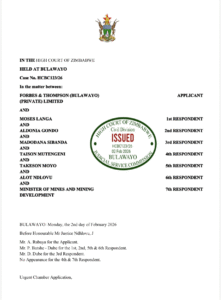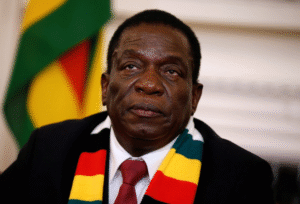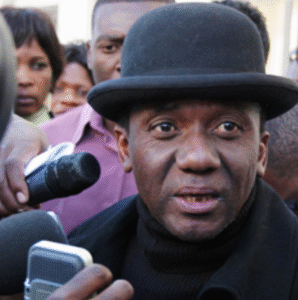CELEBRATING DEGREES OR CHASING POWER?

President Emmerson Mnangagwa recently visited Chiweshe in Mashonaland Central to celebrate a big achievement by his wife, First Lady Dr. Auxillia Mnangagwa. She earned a Doctor of Philosophy (PhD) in Tourism and Hospitality Management from Midlands State University. This event came after she was officially awarded her degree by her husband during a graduation ceremony at the university in Gweru.
The First Lady’s achievement has sparked mixed reactions. Some people have praised her hard work, while others have raised concerns about the growing trend of high-ranking officials in Zimbabwe pursuing advanced degrees for questionable reasons. This trend reminds many of the case of former First Lady Grace Mugabe. In 2014, Grace Mugabe earned a controversial PhD from the University of Zimbabwe. Many described her degree as fake and accused her of using her influence to gain it without putting in the required effort. Her actions became one of the reasons people criticized her during her husband, Robert Mugabe’s time in power. This controversy played a role in the political events leading to Robert Mugabe being removed from office in 2017.
The issue of PhDs among Zimbabwean officials has become a hot topic. Vice President Constantino Chiwenga also holds a PhD, which he earned from the University of KwaZulu-Natal. However, his qualification has not escaped scrutiny, with many questioning the credibility of his academic work. These stories have led to concerns about what motivates top officials to chase these qualifications. For many, this practice seems more about personal gain than a desire to serve the public better.
In Zimbabwe, some officials view a PhD as a symbol of success and a way to gain more power and respect. They believe that having a PhD makes them look more credible and capable as leaders. For them, it becomes a tool to strengthen their political influence and advance their careers. This phenomenon is often called “academic credentialism.” It is when people use academic degrees not to improve their knowledge or skills but to boost their social or professional status.
While education is important, it should come from a genuine desire to learn and grow. For leaders, pursuing higher education should be about gaining more skills to better serve the public. Sadly, in Zimbabwe, some officials see education as a shortcut to power. They chase qualifications for personal benefits rather than for the good of the people they are supposed to lead.
The issue goes deeper than just the individuals seeking these degrees. It reflects a system where appearances matter more than real achievements. Many ordinary Zimbabweans work hard to earn their qualifications honestly. When they see high-ranking officials getting advanced degrees under questionable circumstances, it creates frustration. It shows that the system often rewards connections and influence more than hard work and merit.
Zimbabwe has a rich history of valuing education. The country was once known for having one of the best education systems in Africa. For this reason, it is disappointing to see education being misused for political gain. When leaders prioritize personal benefits over genuine learning, they undermine the value of education and set a bad example for future generations.
Pursuing a PhD or any other qualification is not wrong. In fact, it is commendable when done for the right reasons. Education opens doors to new ideas and solutions. It can help leaders make better decisions and improve the lives of the people they serve. However, when officials pursue degrees simply to gain power or prestige, they fail to uphold the true purpose of education.
As Zimbabwe moves forward, it is important for leaders to lead by example. They should value education as a tool for progress, not just as a status symbol. By doing so, they can inspire the next generation to pursue learning with honesty and integrity. For now, the question remains: are our leaders truly seeking knowledge, or are they just chasing titles?





